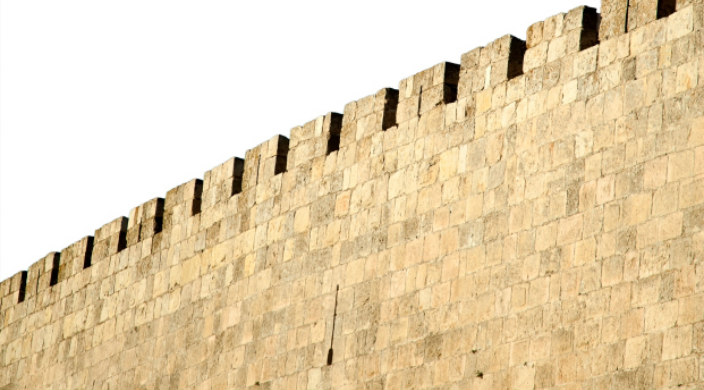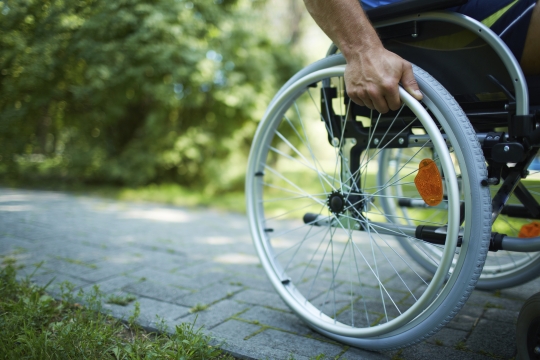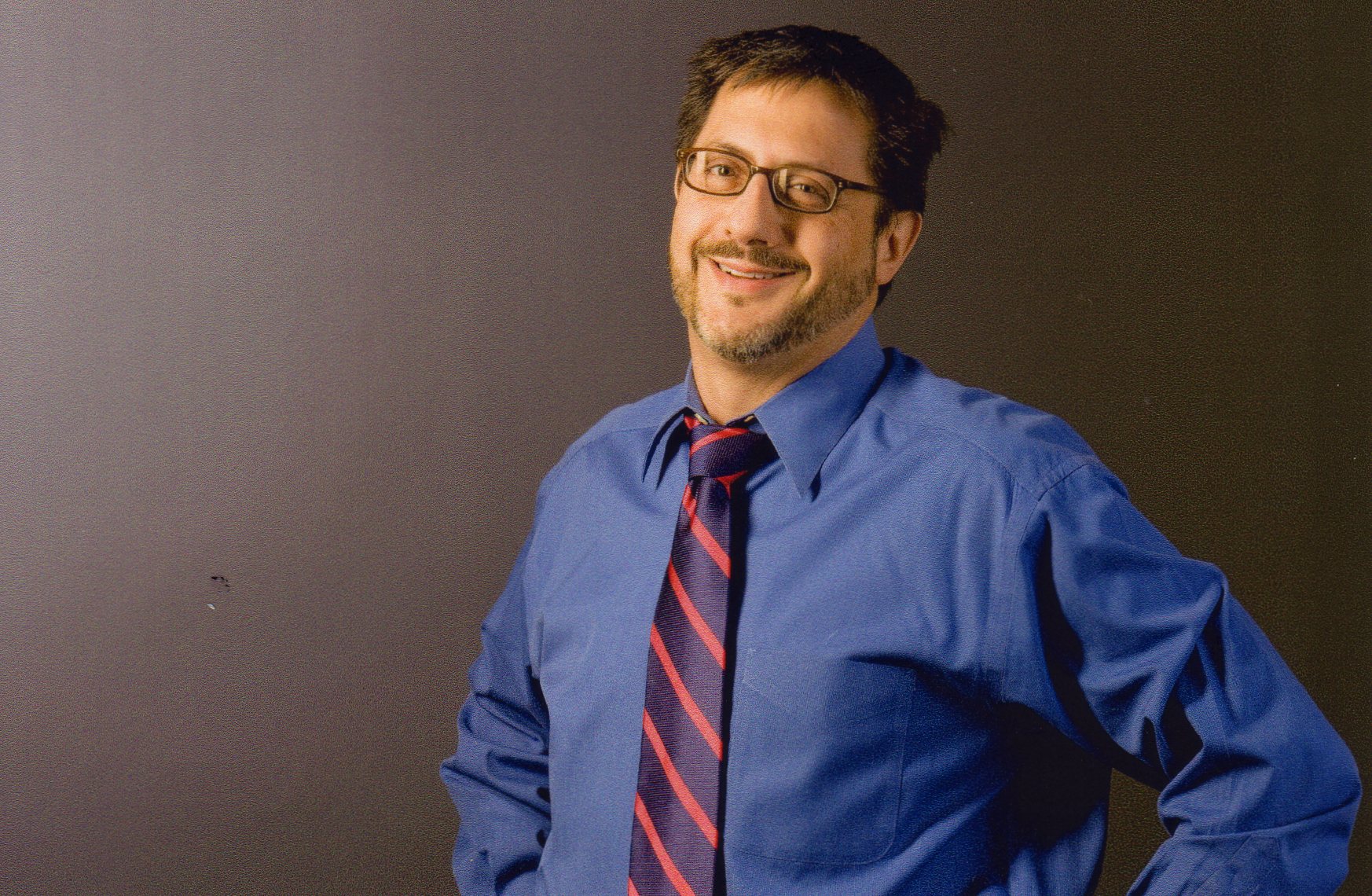
I am sick with sorrow. Sick with revulsion. Sick with tears.
On Saturday night, at the corner of El Wad and Sha’ar Barzel streets in the Muslim Quarter of Jerusalem’s Old City, five police set up a human barrier to prevent a gang of young, religious Jews from marching deeper into the quarter. Sha’ar Barzel leads to the Kotel HaKatan – the Little Kotel – the continuation of the larger part of the Western Wall, which almost exactly faces where the Holy of Holies of the ancient Jewish Temple is believed to have been.
For the past five years, on the evening of Tishah b’Av, I’ve gone to visit the Little Kotel after hearing the book of Eicha, Lamentations, read publicly at Robinson’s Arch, the portion of the Western Wall south of the Mugrabi Gate designated as an egalitarian prayer space. Tishah b’Av is the Jewish holy day that recalls the destruction of the first and second Temples and has become a religious day of mourning.
In the past, I’ve gone to the Little Kotel because it’s a small space, attracting individual worshipers, free of the large groups of ultra-Orthodox reading Eicha and singing kinot, songs of sorrow and lamentation. Unlike the Kotel itself on Tishah b’Av – which feels almost festive with people taking selfies and looking for family and friends – the Kotel HaKatan has been a place of quiet and reverence. A handful of men and women quietly said their prayers at that portion of the Wall.
As I walked into the Muslim Quarter on El Wad Street from the main Kotel Plaza, a group of Israeli Police passed me at a run. Something must have needed their attention deeper into the Quarter then Sha’ar Barzel Street, where I took a right turn.
Sha’ar Barzel ends at the Iron Gate, one of several gates into the Temple Mount inside the Muslim Quarter. For the first time in my observations, a group of ultra-Orthodox Jews were crowded around the locked gate, singing dirges and crouching and straining to look through a crack in the door to gain a glimpse of the location of the ancient Jewish Temples. It was a unique mix of young people: Haredi, Dati Leumi, and Haredi Leumi. A young man laid fully prostrate on the ground.
At the end of Sha’ar Barzel, after a left turn through an arched doorway, the Little Kotel can be found in a small courtyard after a brief walk between the stone walls. It was packed, mostly with men, and a few women at the corners, still reading the Eicha. Unlike years past, it had become another location of religious fervor.
After observing this shift in energy, I left and returned down Sha’ar Barzel Street to the intersection with El Wad. There, a gang of Jewish ‘toughs’ were marching down the street singing aggressively about the rebuilding of Jerusalem as second group of police hastily set up a human wall.
What I saw was Jewish youths purposefully antagonizing Arab youths, bruising for a fight. I saw one Arab youth throw a plastic cup at one of the Jewish teens. The two Jewish teens pulled chains off of their bikes to go after the Arab teens. The Arab teen charged at the Jewish teens, but was held back by friends. An off-duty visiting Tel Aviv police officer flashed something – I’m assuming a police ID – at the Jewish boys and they backed off, almost immediately distracted by the march of other Jewish youths coming up the street.
I’m sick with sorrow.
I spoke with the cop, who was disgusted that we Jews couldn’t move through the Muslim Quarter with respect and in peace on Tishah b’Av.
I spoke with two ultra-Orthodox men, who were smiling as they observed the hostilities. One argued that the Jewish teens were provoked to protect other Jews, claiming that Arab kids smashed glass bottles on the stone street to harass Jews who were visiting for Tishah b’Av. “We should just kick them all out,” the other said. “They don’t belong here anyway.”
Sick with revulsion.
Can it be a coincidence that this change in tone – the increase in fervor and harassment in the Muslim Quarter on Tishah b’Av – has come days after Israel’s Knesset enacted the nation-state law?
Can it be a coincidence that Israeli police detained a Conservative rabbi for performing a marriage after a complaint was filed by the Chief Rabbinate only days after the nation-state law passed?
Can it be a coincidence that the Knesset passage of a new bill on surrogacy that discriminates against the LGBTQ community the same week as the nation-state law?
Sick with tears.
Last week was a bad week for Israel and the Jews, a week in which the worst instincts of our brethren were enabled and acted upon.
But that shouldn’t stop Americans and Israelis from working for change in Israel.
It won’t stop me. Here in Israel, I’ll continue to protest, to speak out and to participate in just causes. And I will continue to pray. Here is my prayer from this Tishah b’Av:
The Temple
Do not mourn
For the Temple Mount.
The stones mourn for you.
They mourn for you who have forgotten
That God’s Voice
Can still be heard in the hills.
The stones mourn for you
Who have forgotten
That God’s Voice can still be heard in the valleys,
In the forests and deserts,
In the waters and skies.
Do not mourn
For the lost priests.
The tribes mourn for you.
They mourn for you who have forgotten
That God’s people are one.
Ephraim and Judah,
The Levites and the daughters of Zelophehad,
Ask why we still divide the House of Israel,
Why we still cast judgment,
Why we spurn each other with anger.
The tribes mourn for you who have
Forsaken your brothers
And rejected your sisters,
Closing your minds and hardening your hearts.
Do not mourn
For the lost sacrifices.
The yearling without blemish,
The ephah of fine flour and the hin of oil,
Mourn for you.
They mourn for you who have forgotten
That God requires your love and your power,
Your hope and your deeds.
The yearling, the flour and the oil mourn for you
Who have forgotten
That God wants the blood that flows through you,
The strength of your days,
Your song and your laughter,
Your wisdom and healing.
Tear your clothes
And sit in ashes
If you must.
Then, rise up!
Rise up and listen to God’s call:
Love My People Israel,
Love all of My People Israel
Then, you will know the depth of My righteousness
And will drink from the well of My compassion.
Give them your heart.
Give them your days in service,
With joy and thanksgiving,
So that My Glory will dwell among you,
And that your days are long on this earth.
“The Temple” is © 2012 Alden Solovy and tobendlight.com. All rights reserved.
Related Posts

Staying Connected with Our Loved Ones Even When we Disagree

How the Israel-Hamas War Disproportionately Affects Israelis with Disabilities


